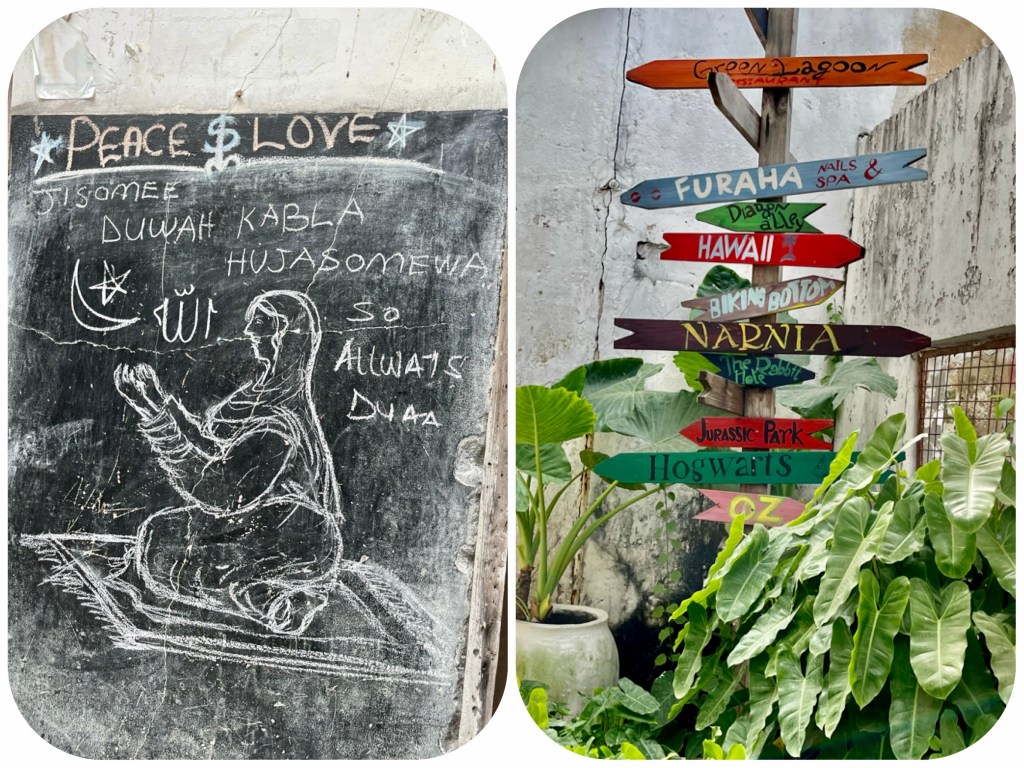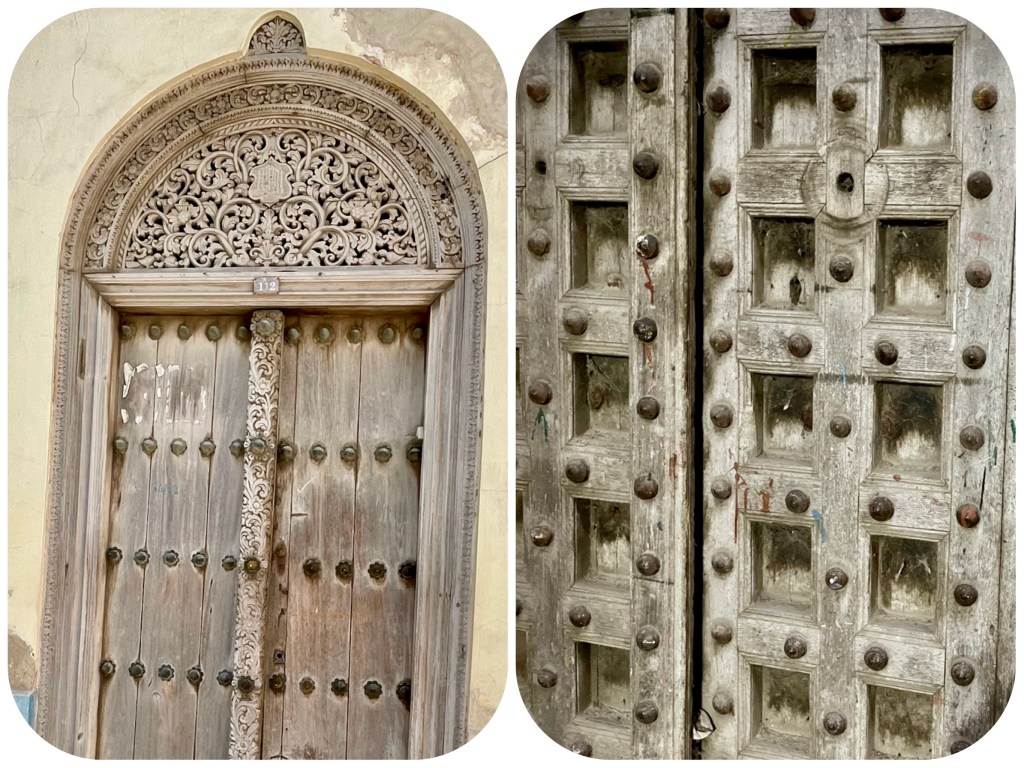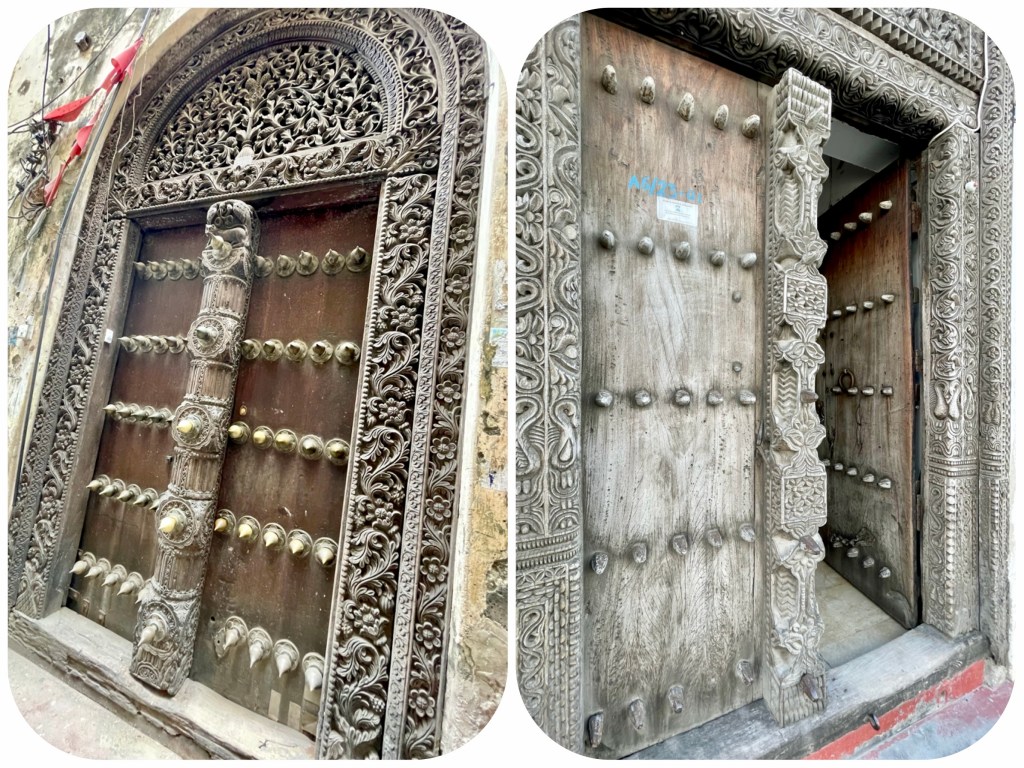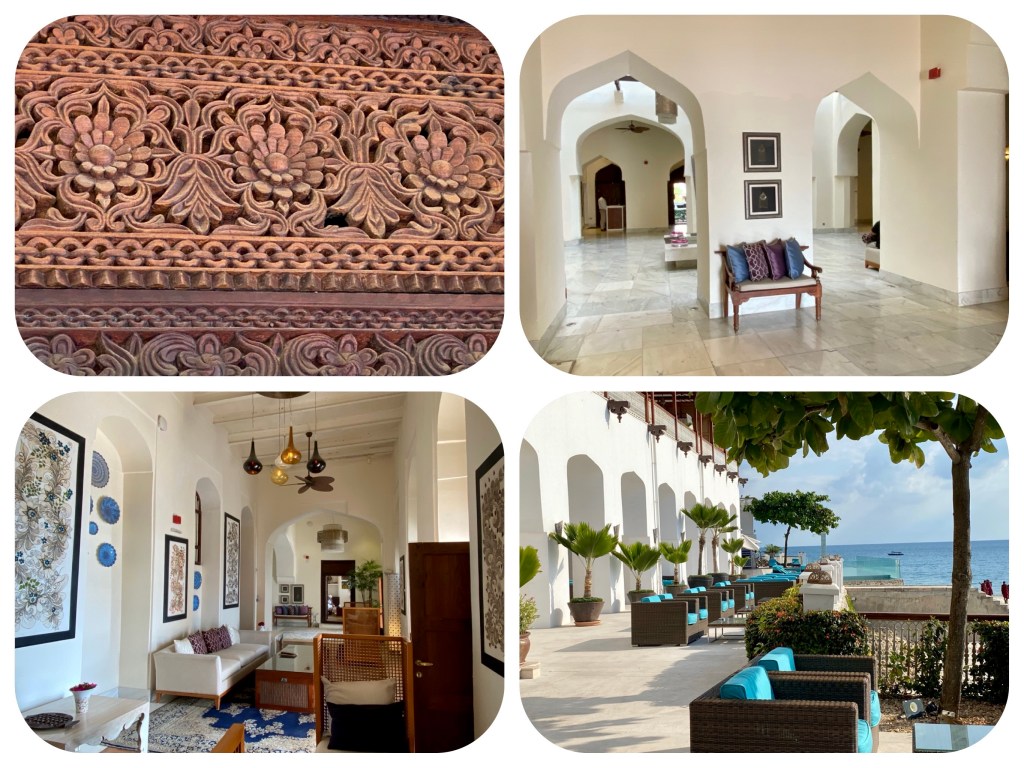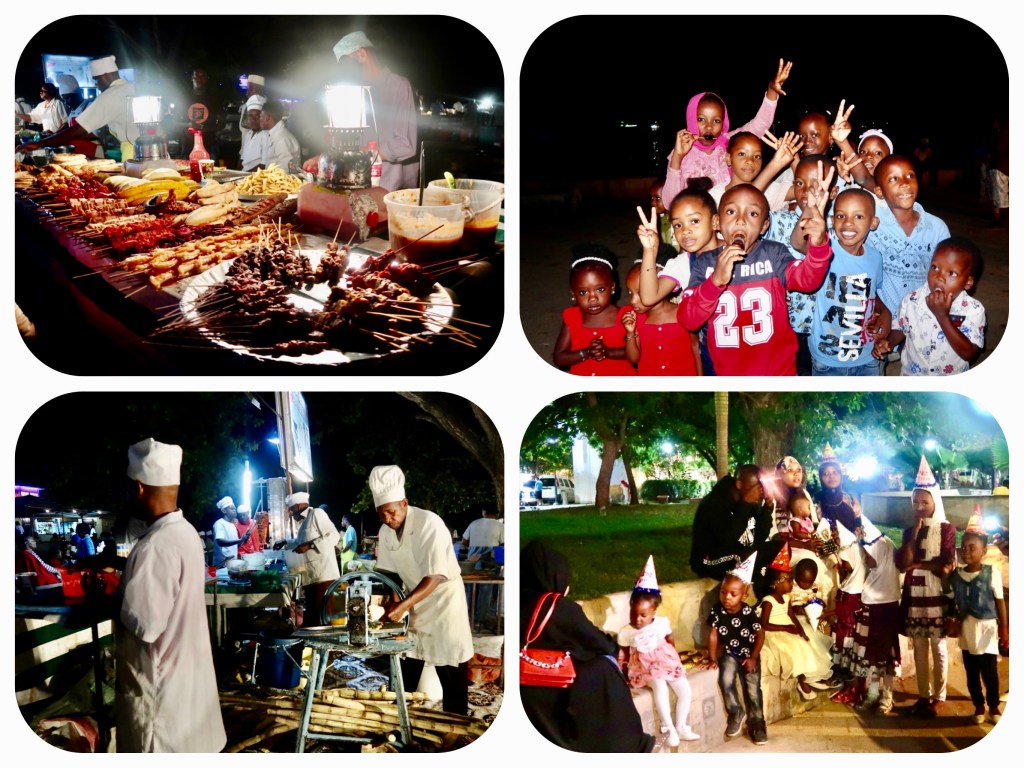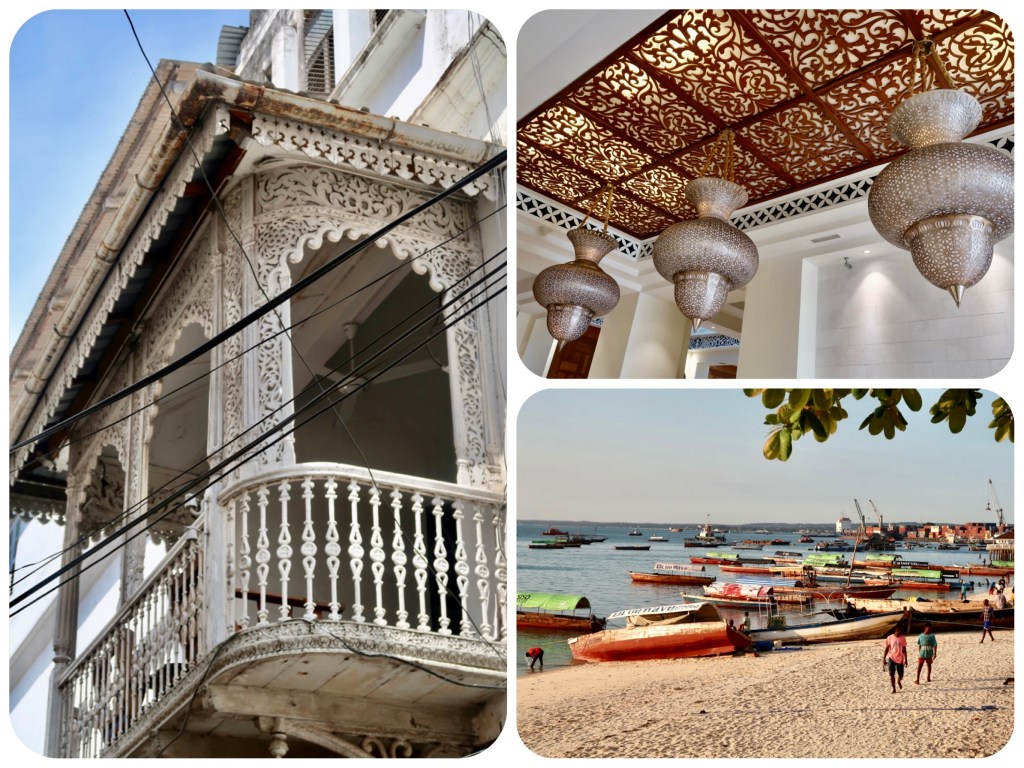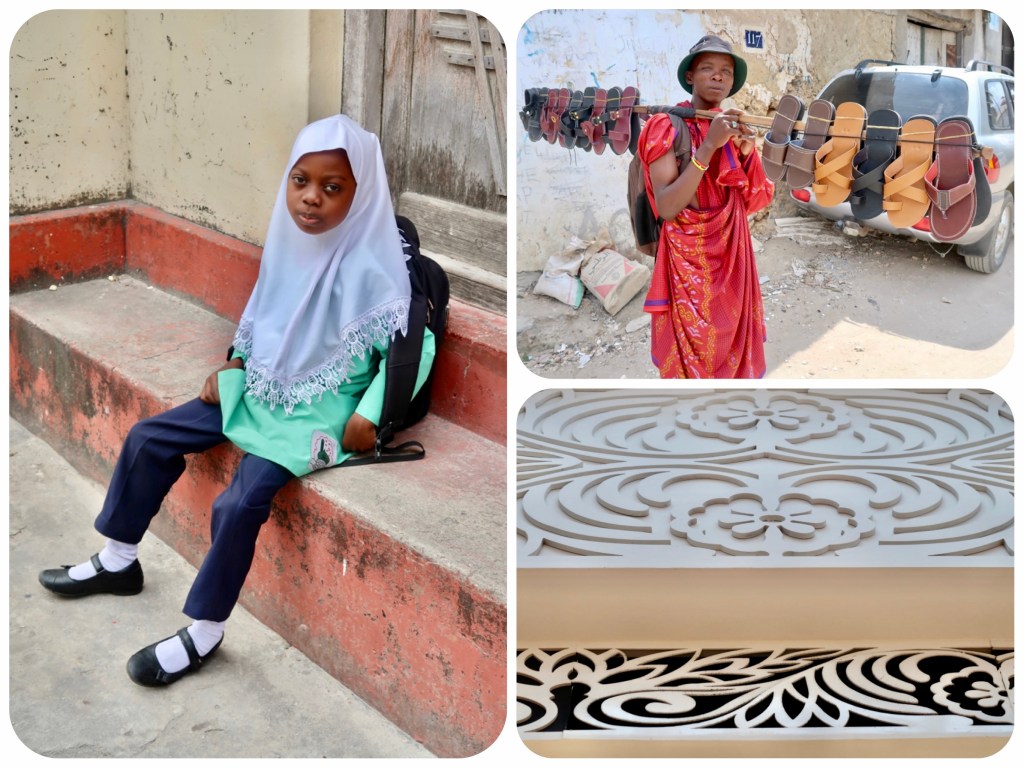How To Travel Slowly, Stone Town, Zanzibar
How To Travel Slowly, Stone Town, Zanzibar
There are not the usual thousands of tourists in Stone Town nowadays, but the city is still full of tourists.
When we chat with people, they often ask us for how long we’ll be in Zanzibar, and they express amazement at our two months’ stay.
Some say that they wish one day to also travel for two or three months at a time, and others express amazement that we do not look travel worn and fatigued, after being away from home for so long.
While walking the streets of Stone Town, we have seen backpackers with huge and heavy backpacks, with clothes covered in dirt, checking into dingy and unhygienic guesthouses.
They did not smile back at us, their eyes were cast down and they looked tired, fatigued and totally worn out.
Traveling with a backpack means that you can be more mobile, but these huge backpacks are a burden, and do not allow better mobility.
Staying in places that have no hot running water, that offer beds full of ticks, fleas and mosquitoes, and sheets covered in stains, can lead to travel fatigue and a desire to return home, where you can drink the tap water and the hot water in the shower is not considered a luxury.
Stone Town is full of accommodations ranging from budget to real luxury.
we passed by cute small hotels and $10-$20 hostels that were well lit, clean, nicely painted and and with no running sewer at the front, like the one I saw the backpackers check into.
After years of traveling the world, Jules and I have come up with a strategic plan of how to travel to suit our preferences and not make us travel weary and exhausted.
Perhaps in Europe, Japan, Indonesia, Thailand, Taiwan and the USA, where the standards of living are relatively high, we can stay in small boutique hotels and charming guesthouses and be very comfortable.
But in places like India, Sri Lanka, Zanzibar, Mexico, the Philippines, and China, we always choose a luxury resort or hotel that offers a buffer from the hustle and bustle of the streets.
At least after a long and sweaty day exploring the torn-up, dusty city streets, we get a good shower, a lovely soak in the pool, clean sheets and quiet.
Don’t get me wrong, I LOVE exploring the narrow streets of Zanzibar.
The streets are full of coconut sellers, carts selling black muscat grapes and fresh oranges.
The tiny shops include juice bars, lovely cafes, and people offering curios and wood carvings, jewelry and beach clothing.
Young Maasai men walk the streets carrying crudely made leather sandals on a stick, and everywhere there are smiling men offering cheap plastic sunglasses.
Jewelry shops sell Tanzanite stones set in white gold.
I love admiring the wide wooden doors of the old houses, the arched windows, the louvered wooden balconies that offered the Arab ladies a way to look out without being seen, the brass trays for serving strong Arab coffee, and the long Arab samovars.
I love the busy markets, with stalls selling colorful spices, fresh and dried fruit, clothing, electronics or bags.
But after many hours per day of walking around town, looking for clean and charming places to enjoy a meal or a refreshing drink, I am very grateful to return to our luxury hotel with its cool air conditioning, beautiful seats overlooking the red sunsets, soft clean towels, and comfy beds with clean sheets.
When traveling, we always choose to bring clothes that can be easily washed by hand in the shower, and that dry overnight.
This ensures that we always wear clean clothes and feel clean and refreshed.
When we follow our own rules, we never feel travel weary and in fact, often feel sad to be going home.
We know that we will miss the daily exploration, the exotic life, the great food cooked for us, the clean luxury resorts where we do not have to make the bed, clean or wash dishes.
I will miss the diving, the fish, the feeling of adventure.
Home is beautiful and quiet, but traveling is exciting, interesting, engaging, exploratory, and it all feels very alive.
For example, on our daily walks around Stone Town, we went to see the old Clove Distillery by the water.
Now, it is just a disheveled building, but the area had a small fish market, a used clothes market and a set of shantytown food stalls and markets that are only for the locals.
The shade was provided by rusted corrugated iron pieces, and local ladies sold juice, cooked vegetables, fried small fish, and displayed homemade bread, all covered in flies.
Jules asked me if I thought it was a dangerous place for us to be walking in.
We have been warned about not carrying a bag, leaving all our money in the hotel’s safe deposit box and not wearing jewelry.
I looked deep into the eyes and faces of the people we passed, and I did not see one dangerous crook among them.
I often saw glaucoma in their eyes, or resignation for their places in life, but absolutely no danger.
Their smiles, whether with missing or crooked teeth, were all genuine and warm.
There is more danger at home in Colorado from being run over by a careless pothead skier high on Marijuana, or by a gun enthusiast hunter when going for a hike in the forest.
Although we felt absolutely no danger from any of the people, both Jules and I think that our stomachs might not have survived if were to drink or eat anything in that market.
I know that not everyone can afford a luxury hotel to buffer you from the streets, but a buffer can also be achieved on a much lower budget.
Even when I was very young and had no money, I traveled in great comfort.
Another strategy to avoid travel fatigue is to take extra time in each location.
It is best to ‘waste’ a day sitting in a cool cafe reading, chatting with others or doing nothing, than to rush and fill your days with too much to see and do.
When you are in a hurry with an overloaded itinerary, you are bound to feel fatigued, and the memories of your trip will feel like a movie played on fast forward.
Wishing you a blessed day,
Tali



